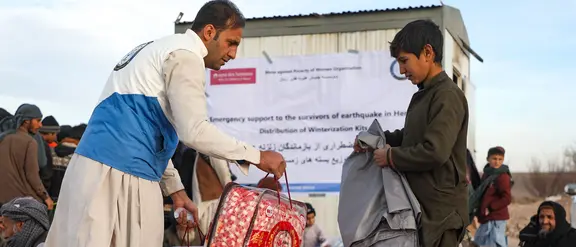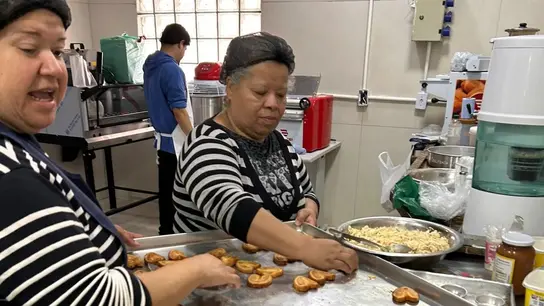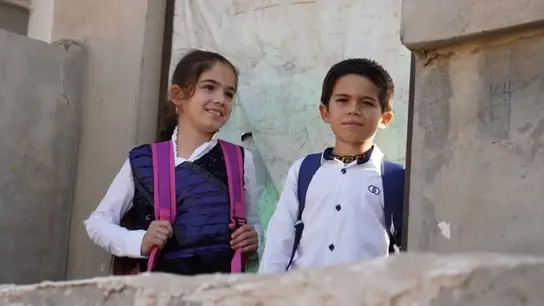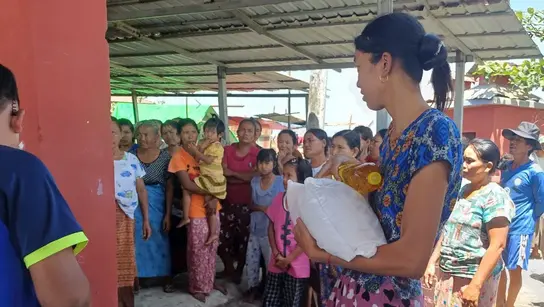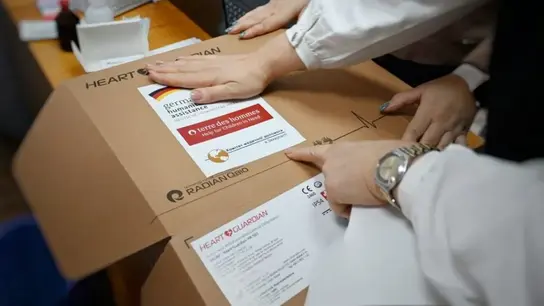In acute emergencies caused by natural disasters, wars, or armed conflicts, Terre des Hommes helps children and their families. Support us in our immediate disaster relief and long-term reconstruction efforts.
Your donation helps!
Projects
Survive
Natural disasters, wars, or armed conflicts trigger acute emergencies. Terre des Hommes helps children and their families in collaboration with local partner organizations. Together, we provide needs-based, rapid assistance specifically tailored to the needs of children and young people. Ensuring the survival and preserving the dignity of those affected is the overriding principle of our joint work with our partner organizations.
The work of the humanitarian aid organization Terre des Hommes follows the vision of the writer Antoine de Saint-Exupéry, who saw the symbol of the loss of humanity in the sight of children injured and killed in war and countered this with the idea of a " Terre des Hommes ," an earth of humanity that needs as many allies as possible.
Integrated approach and lobbying
Terre des Hommes ' humanitarian aid is the active participation of children and young people themselves . Comprehensive peace work is a key component, particularly in situations of war and armed conflict that result in flight and displacement and set in motion long-lasting spirals of violence. This is the only way to successfully shape a new beginning in the future. This so-called "triple nexus" refers to the integrated approach that links humanitarian aid, development cooperation and peacebuilding. The aim is to respond more effectively to complex crises and promote sustainable solutions by coordinating these three areas. To this end, Terre des Hommes founded the global initiative CAAC - Children associated to armed conflicts (Children in Armed Conflicts) as part of its humanitarian aid (see below).
Terre des Hommes ' humanitarian aid is accompanied by political lobbying to document the concrete experiences from our work and make them available to political decision-makers in the interests of children's rights.
The "Children in Armed Conflict – CAAC" program in humanitarian aid.
Terre des Hommes 's humanitarian aid, known as the CAAC program, focuses on children and young people in armed conflict. Many of them suffer not only from the war in their homeland—they are recruited as soldiers or for forced labor, displaced, sexually exploited, or lose friends and family—but often also from natural disasters, such as Cyclone Chido in Mozambique or the devastating earthquake in Myanmar.
The CAAC program also provides funds for acute emergency aid (food, medication, clothing, tents, psychological help), especially funds available for projects with a focus on participation: children and adolescents, but also parents and neighbors are included in the planning of emergency aid and pension projects. You get training in communities and schools so that you can stand up for children's rights and report what happens to children and adolescents in the armed conflict on site and how you can protect them-at the local level in your villages and towns, but also at national and international level (e.g. in a CAAC project in Myanmar). This is often completely unknown because journalists and helpers have no access from the outside.
In other training courses, they learn how to solve conflicts in the family, at school or in the village without violence or how they can help their community in disaster prevention (e.g. in CAAC projects in Mozambique, South Sudan, Colombia and the Northeast India). They then pass on this knowledge to people in their communities. In this way, children and adolescents are strengthened and protected against violence and can work and become active in their communities for peace, human rights and locally adapted help.
Localization in humanitarian aid
Localization in humanitarian aid aims to strengthen local partners and actors and to give them the booklet of action. The familiarity with your own environment makes it possible to orientate help with great accuracy on the needs and to waste neither money nor goods. It also means better knowledge of political and social circumstances and thus a lesser risk that aids fall into the wrong hands, an improper distribution takes place or unsuitable goods and food are distributed.
However, greater risks must be considered and secured for the local partnerships of humanitarian aid. Compliance with the core principles of humanitarian aid - humanity, neutrality and impartiality - means, for example, in armed conflicts for employees of local partners, great personal ventures and for the organizations the risk of political and military capability. This is especially true where the scope for action is massively restricted (Shrinking Spaces) and the independent work of the organizations is to be brought to a standstill by exaggerated bureaucratic hurdles and criminalization. Women's organizations that have to make the special needs of women and girls visible in humanitarian contexts first, in order to demand the basic care and property rights, also take serious risks personally.
High quality standards to the partners
Humanitarian aid works where public care and administrative structures are no longer or only inadequate and at the same time moved large quantities of goods and funds to the disaster and war areas by mostly international organizations. Therefore, the local partners in particular have to meet high quality standards in coordination and administration in order to ensure effective, efficient and sustainable use of the funds and to maintain any gate of corruption and abuse.
Terre des Hommes , together with its partners, is therefore advocating for better integration and financial resources for local actors. Terre des Hommes places particular emphasis on the recognition and consideration of children and young people as actors in humanitarian aid. Although children and young people make up more than a third of the recipients of humanitarian aid and many of them grow up in conditions of protracted crises, they are barely visible or heard in the machinery of humanitarian aid. However, as the COVID-19 crisis has shown, young people in particular are strong partners when it comes to rapid organization and coordination and precise knowledge of potential threats.
Terre des Hommes therefore explicitly includes children and young people in the development and implementation of its disaster and crisis management measures. In the long term, we also aim to contribute to the development of a local structure for qualified, child rights-oriented humanitarian aid and ensure that aid reaches those most urgently needed.
Further materials
Your contact person
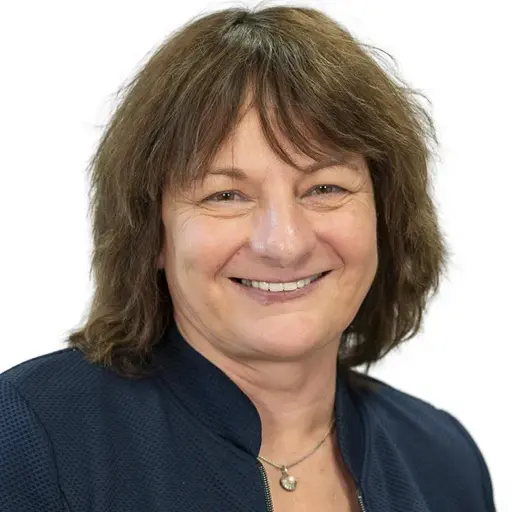
Birgit Dittrich
Management programs
